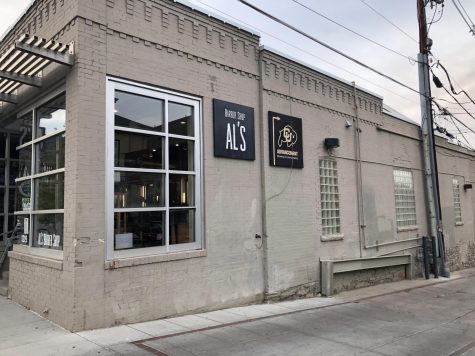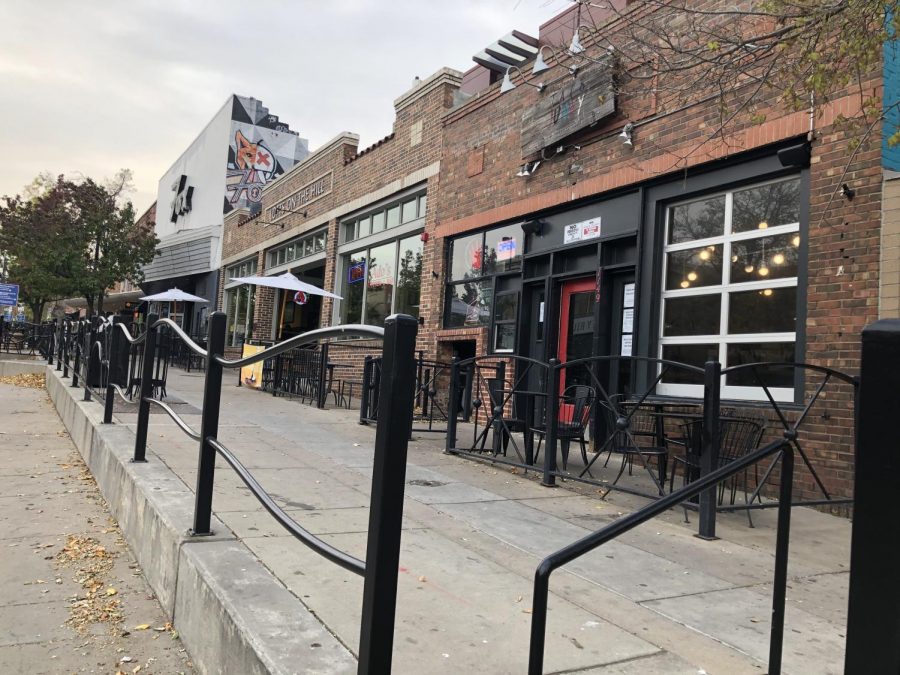How Did Boulder Businesses Survive the Student Ban?
Restaurants and shops on the Hill faced a tough two weeks with the absence of students.
On September 24, the City of Boulder issued a Stay-At-Home order on people of ages 18-22, prohibiting all indoor and outdoor gatherings. While it applies to any person within this age range, it was mainly directed towards limiting the CU students’ interactions with one another. Since the order, there has been an outcry of complaints and many people rushed to see how students, parents and citizens were affected. However, another community has also suffered from this sudden development: the small businesses on The Hill and surrounding areas that rely on the students to maintain their business. After the order was lifted, we reached out to a few small businesses in that area to ask how they had been impacted by the ban.
While the rise of COVID-19 cases with students coming back to town has had its issues, many businesses still relied on the students’ presence for income. Although the lack of social distancing was worrying for many people, CU students are an important part of the economy and many things changed for businesses during their short absence.
The Village Coffee Shop, located on Folsom Street, is typically a hotspot for college students. It is just minutes away from Folsom Field and many housing units on campus, making it a highly sought after location for a meal. The owner, Shanna Henkel, says that during the pandemic, students made up a vast majority of her customers given that these “groups of people are not nervous about dining out.” She noted that since September 24, “a lot of days our business [had] seen a 30 to 50 percent drop over the kind of business that we were doing a week [before].”
Along with the lack of college students, regular (older) customers that were not in the affected age range have been scarce during this time due to their fear of infection. This was a major change for the small diner as a large percentage of customers are either not able to come in with their groups or are afraid of the possible dangers of dining out.
The start of the pandemic signaled a decline in the number of customers for countless entrepreneurs. Between March and July alone, “nearly 66,000 businesses had folded” across the country and the numbers only continued to rise in the following months. Even in a town like Boulder where residents and hungry college students find a real benefit in supporting local shops, areas in our community were no exception to the ill fate that many American businesses have faced.

Upon further research, we found that not all businesses’ hardships were brought upon them by the same causes. We had the opportunity to get in touch with the owner of Al’s Barber Shop, located on The Hill, and were surprised that their struggles stemmed from different causes than those of The Village. The owner’s wife, Karen Urbanowski, said that “Al’s is a ‘higher end’ business than other shops in the area” and therefore attracts different people to their business. The loss of college students during the ban did not cause there to be fewer potential customers. Instead, their usual clients were hesitant to come to a location that was known to have a large number of infected people in the area.
The ban on people of college-age in the City of Boulder had an impact on both the businesses that are highly trafficked with students as well as those that rely on older residents. College students have a major influence on the city and stopping them from gathering changed many things for businesses near the university. Although the ban has ended, it has shown the importance of supporting local entrepreneurs that need your help to secure their livelihoods during the pandemic. The number of small businesses closing permanently is still on the rise, and there has never been a better time to go out and make sure that ones in your area won’t be the next.

Ruby, a senior at Boulder High, is a first-year member of the Owl and hopes to explore the world of journalism through the eyes of a writer. While she isn't new to this style of writing, she has taken many years off from it and is excited to dive back in. Over the last year, The Owl caught her attention as she continued to read the funny, informative, or controversial articles her classmates had produced the year before. She is thrilled to take on stories in multiple categories of the newspaper and find her strengths in each. While she enjoys writing, you can also find Ruby biking over a mountain, kicking a ball around a field, bingeing a new TV series, or torturing her beloved siblings (they...

Luke Kreidl is a senior at BHS and a new member of The Owl staff. He enjoys writing and hopes to be creative with his stories, writing about whatever comes to mind. Luke plays soccer at Boulder High and has played for all four years of high school. Luke has a dog who periodically shows up on google meets until she gets bored. Luke also enjoys lying in bed, staring at the ceiling, and lying on the floor, staring at the ceiling in his free time. Luke enjoys green grapes because, as his grandmother always said, “purple grapes are Satan’s gateway to the soul.”


